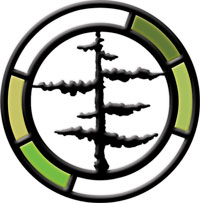
Environmental Philosophies & Ethics
EVR 3020
Session 8: Nested Ecology
Reading Assignment: Attfield, Robin, (2018) Chapter 7: "Environmental Ethics and Religion"; Edward Wimberley, Nested Ecology, Chapters 4-5; Wallerstein, Immanuel (1976) " The Modern World System," in Immanuel Wallerstein's The Modern World-System: Capitalist Agricullture and the Origins of the European World Economy in the Sixteenth Century. New York, NY: Academic Press, pp. 229-233; Lynn Whyte's "The Historical Roots of Our Ecological Crisis"; Richard T. Wright (1970) "Responsibility for the Ecological Crisis." Emily Warde (1995) "Christianity and The Environment: The Lynn Whyte Controversy."
Video Assignment: Maslow's Hierarchy of Needs; Bioecological Approaches to Learning; Resilient social-ecological systems: How? (Nobel Winner Elinor Ostrom); Systems Theory; Immanuel Wallerstein's World System Theory; World System Analysis; Systems Thinking Animation; Bronfenbrenner's Ecological Theory; Bronfenbrenner Ecological Map
Homework Assignment:
-
In what ways does the author discuss nested ecology in this session's readings?
-
When Wimberley uses the term "necessary anthropocentrism" in Chapter 4 of Nested Ecology, what is he referring to and why does he think the concept is important to environmental philosophy?
-
Describe the levels of "nested ecology found in Wimberley's book.
-
What is "cosmic ecology" and how does this relate to religion?
-
What is Lynn Whyte's critique of the Judeo-Christian contribution to environmental destruction."
-
Describe the "controversy" that has followed the publication of "The Historical Roots of Our Ecological Crisis"?
-
According to the author Richard T. Wright, what is wrong with Whyte's critique?
-
Describe Wallerstein concept of the "modern world system."
-
Explain how Maslow and Bronfenbrenner's work relates to Wimberley's nested ecology approach.